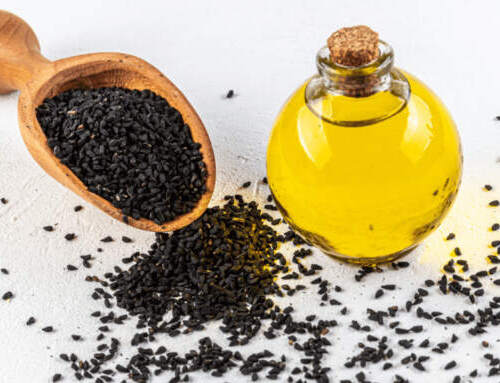If you’re having trouble managing your chronic fatigue syndrome (CFS), you might want to take a look at your diet.
Characterized by extreme exhaustion, fuzzy thinking, and a general feeling of blah-ness, chronic fatigue syndrome affects more than 1 million people in the U.S. alone, according to the University of Maryland Medical Center. (These symptoms are general and can signal health issues aside from CFS, too. If you think you may have CFS see a medical professional for a diagnosis.) And while there are no known cures, healthy lifestyle choices—including eating the right foods—can go a long way towards keeping symptoms in check.
“Making small changes over time can lead to a full recovery,” says Rachel Straub, MS, CSCS, a nutritionist who has CFS. “Finding a diet you can stick to consistently that enhances your energy is essential.”
Here are five small diet changes that can help you fight chronic fatigue:
Swap refined carbs for complex ones.
Unlike whole, complex carbs, refined grains go through a milling process that strips multiple layers of the grain, removing nutrients, like fiber, in the process. In turn, things like baked goods, white bread, and white pasta move through the digestive system more quickly than complex grains. This causes blood sugar levels to spike and then quickly crash. While this might leave someone without CFS feeling a little more sluggish than usual, people with CFS tend to have poorer than average blood sugar regulation, so nutrient void carbs will likely leave them feeling totally wiped, cautions Taz Bhatia, MD, an integrative physician and author of Super Woman Rx.
To keep your blood sugar even keeled and your energy levels up, reach for complex carbohydrates like whole wheat bread, barley, oats, millet, quinoa, and wild rice. (This ultimate guide to cooking whole grains may come in handy while you’re trying new dishes.) They’re rich in fiber, so they digest at a slower rate and keep your blood sugar and energy levels more stable, says Saundra Dalton-Smith, MD, an internist and author of Sacred Rest. If you have trouble digesting gluten, as many people who are fighting chronic fatigue do, stick with gluten-free options like brown rice, quinoa, or sweet potatoes. (Yes, sweet potatoes are both a veggie and a complex carb. Fun fact, right?)
Help yourself to healthy fats.
Like many chronic diseases, CFS is linked to heightened levels of inflammation. While trans fats are known to make inflammation worse, healthy fats can help ward it off, according to Harvard Women’s Health Watch. Healthy fats also digest slowly, so they promote stable blood sugar and energy levels, Bhatia and Dalton-Smith note.
Sources of healthy unsaturated fats include nuts and nut butters, olive oil, avocado, and wild salmon. On the flip side, common sources of trans fats include fast food fries and nuggets, commercially prepared pies, non-dairy creamers, and butter-flavored microwave popcorn. To identify sources of trans fat, read ingredient labels and look for the word “hydrogenated”. This should tip you off to the fact that traces of trans-fat are present in the product—even if it claims to be “trans-fat free.” (If there are less than 0.5 grams per serving, food makers can legally make this claim.)
Vitamin B
Namely, ones that are high in vitamin B12 (like poultry, eggs, and fish) and folate (like leafy greens, broccoli, and citrus fruits). These vitamins play an important role in helping mitochondria—the part of your cells responsible for producing energy—function properly, Bhatia explains. And Institute of Neuroscience and Physiology findings suggest that getting enough could help relieve symptoms in people with CFS. Your doctor can help you determine how much B12 and folate you should aim for each day. (Here are more foods that promote sleep.)
One thing to keep in mind? Eating B-rich foods might not be enough, even if you dutifully meet your daily quota. But its one small thing you can do to help fight chronic fatigue. That’s because some people are missing the enzymes needed to absorb B vitamins from food, Straub says. A simple blood test can determine whether you have absorption issues. If you do, your doctor might recommend that you get regular B12 shots in addition to eating plenty of B-rich foods, Bhatia says.
Consider cutting back on caffeine to fight chronic fatigue.
In small doses, caffeine might give you a boost. But like refined carbs, going overboard can cause your energy levels to spike high and crash hard. This will leave you desperately craving even more caffeine just to get back to baseline. This kind of vicious cycle can set you up for extreme energy highs and lows. It can also tax your adrenal glands, which can leave you feeling even more tired and achy.
So how much caffeine can you have without suffering uncomfortable consequences? In general, experts recommend sticking to 400 milligrams or less, which is the equivalent of two 16-ounce coffees. But that’s not a one-size-fits-all recommendation, especially for people with CFS. Pay attention to how your caffeine consumption makes you feel, and adjust your intake accordingly. “Some people are more sensitive to caffeine than others,” Straub says. “If it aggravates your symptoms, you should cut it out, or at least try having less”.
Stay hydrated.
Even mild dehydration can leave you feeling tired and foggy-headed. “Without adequate hydration, toxins can’t be released properly through your sweat glands,” Dalton-Smith explains. “Blood also can’t flow efficiently to bring disease-fighting white blood cells to where they’re needed most.”
Since hydration needs can vary based on factors like age, size, climate, and activity level, your water needs might be higher or lower than the standard eight-glass-a-day recommendation. Instead of going by that, just look at your urine. If it’s dark yellow, there’s a good chance you need to drink more. If it’s pale yellow or clear, you’re probably right on target, Dalton-Smith says.






